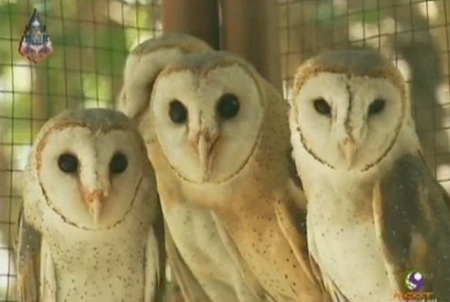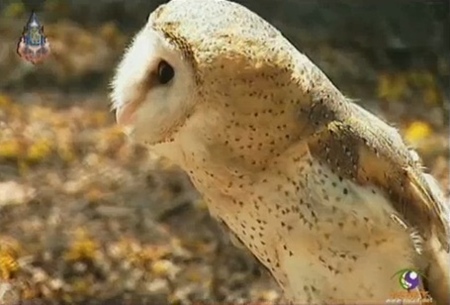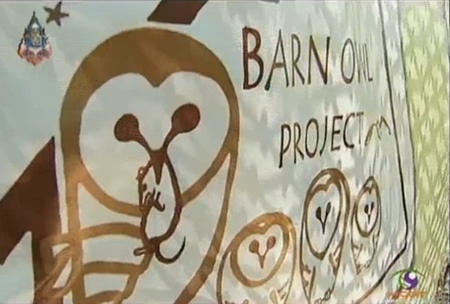In Thailand, people believe that barn owls will bring them bad luck. Let’s say if the bird is resting on the roof of someone’s house, it is believed that death is brought there at their door step. Someone will die.
However, a group of Thais today are trying to change such superstitions, for they say that barn owls are in fact quite useful in helping farmers catch and kill rats and mice on their farms.

Such help is obvious in oil palm plantation and rice paddy fields. Usually, a barn owl catches and eats one or two rats every day, making a big dent on the rat population at 350-700 rats annually.
Having the birds in your farm then becomes a very good thing, but due to the Thai belief and ratsbane and other poisons used on farms, the number of barn owls has dropped dramatically almost to the point of extinction.

In order to help preserve the birds, consequently Kasetsart University’s Kamphaeng Saen Campus set up a Barn Owl Project at its campus. The project is also to breed the animals and provide knowledge to farmers and to generate interest among others.
“Barn owls can really help decrease rat problems in oil palm orchards without the need to depend on ratsbane. This adds economic value to the birds,” said Assoc Prof Worawidh Wajjwalku from the Kamphaeng Saen Campus Faculty of Veterinary Medicine.

Barn owls are protected wildlife under the Wildlife Preservation and Protection Act and are found in all parts of Thailand. Anyone harming the birds can face a maximum of four years in jail and/or a fine of up to 400,000 baht.
Dr Benchapon Lorsanyaluck, a veterinarian at the Kasetsart University Veterinary Teaching Hospital, as one who knows the birds intimately and can speak to their benefits, said he wanted the Thai public to change its negative attitude toward the barn owl.
“Let’s appreciate more of what the nature gives us,” Dr Benchapon says. “And we can if only we let barn owls breed naturally.
“I want our Thai people to understand wildlife more. That’s why this project must continue to share knowledge and other information of the birds to the public, for their benefit is obvious,” d Dr Benchapon said.
To promote chemical free farming, the Barn Owl Project is willing to give out some of its birds to interested farmers in order that chemicals are not used in their oil palm plantations on the condition that project staff may inspect the farm and its surrounding area to see whether it is suitable for the birds’ living conditions.




